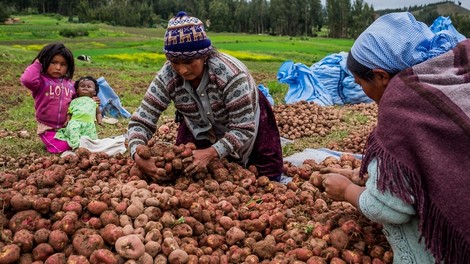Your podcast discovery platform
Curious minds select the most fascinating podcasts from around the world. Discover hand-piqd audio recommendations on your favorite topics.

piqer for: Climate and Environment Boom and bust Global finds
Didem Tali is an award-winning journalist covering international development, gender, displacement and environment issues for English-language media around the world.
Indigenous Bolivian Women Cope With Climate Change
Bolivia is home to a populous indigenous community, the majority of whom are farmers.
Like many countries around the world, the land-locked South American nation is dealing with the consequences of climate change such as extreme weather patterns. This means the indigenous farmers who depend on seasonal patterns are extremely vulnerable to the effects of climate change. Since indigenous women are responsible for the majority of food and agricultural activities, climate change gives them a double burden.
Al Jazeera reports that "in the past 10 years, NGOs and the government have focused on reducing the gender gap and teaching the community how to adapt to climate change, while empowering women to take on a greater role in society."
This photo essay features intimate photos of indigenous female farmers from Tiraque, town located 3,300 metres up the Cochabamba Valley in the country's central region.
The photos of women trying to feed their families emphasize that climate change decreases the quality of harvests, reducing their nutritional value.
One solution these women found is to raise cows and sell them in the dry season to cope with the instability brought by erratic weather. Hence several photos focus on women and their cows.
Due to poverty, men from the indigenous villages often migrate in search of work, which means women are likely to be overrepresented in these villages.
